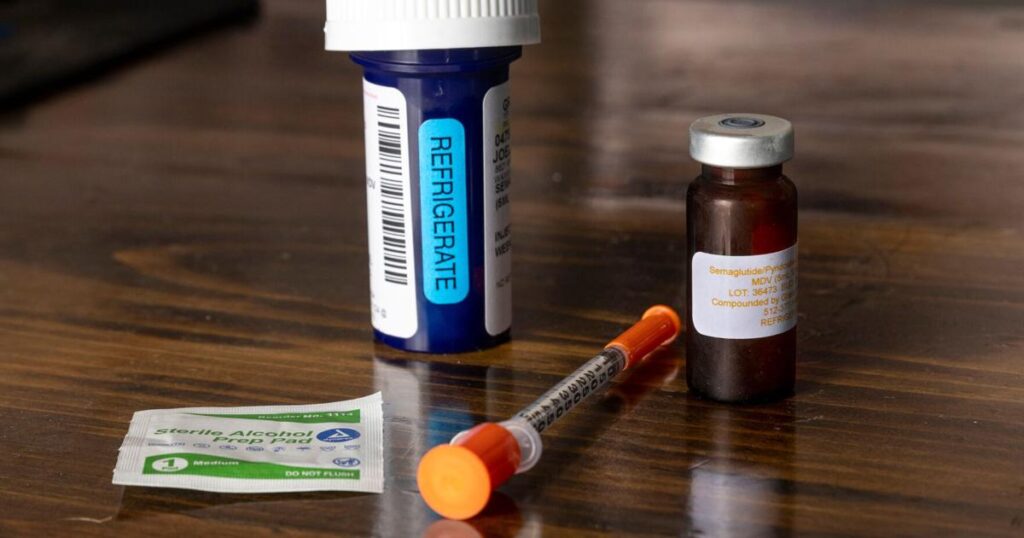The U.S. Food and Drug Administration has added new warnings to drugs such as Ozempic and Wigovy, warning that patients taking the drugs may be at increased risk of inhaling stomach contents into the lungs during anesthesia.
The FDA added warnings to most drugs on November 1, according to the agency’s website.
This warning applies to GLP-1 receptor agonists, including Ozempic, Wegovy, Rybelsus, Saxenda, Victoza, Mounjaro, and Zepbound.
Medical news website Medscape first reported the warning label update on Wednesday.
Prescribed for diabetes treatment and weight loss management, GLP-1 has several effects on the body. One of the effects of the drug is to slow down the emptying process of the stomach.
However, this also means that some patients taking this drug may still have gastric juices remaining in their stomach even after following standard medical guidance regarding fasting before anesthesia. means.
The new FDA label says these patients have rare cases of pulmonary aspiration, or inhaling fluids or food into the lungs, while under anesthesia.
According to the FDA, it is not yet clear whether this problem can be resolved by changing the pre-anesthesia fasting period or by temporarily discontinuing the use of GLP-1.
The FDA said patients should tell their doctors they are taking GLP-1 before undergoing surgery or other procedures.
Healthcare professionals have known about the risk of aspiration for years, said Dr. Angela Fitch, an obesity specialist and co-founder of Knownwell, a weight management clinic that opened in Plano last month.
Fitch said the majority of patients taking GLP-1 are unlikely to have problems, but the slow emptying of the stomach may cause problems for some. It is said that there is. That’s why she said she recommends patients fast for an extended period of time before surgery, rather than stopping the medication before surgery.
“The issue is not that drugs increase the risk of aspiration per se,” Fitch said. “It’s important to give your stomach enough time to empty.”
The FDA’s updated warning comes months after the European Medicines Agency issued a similar recommendation over the summer, advising patients taking GLP-1 to consult their doctor before receiving anesthesia.
In its recommendation, the European Medicines Agency noted that studies have not shown that taking GLP-1 directly poses a risk of aspiration under anesthesia. Rather, this recommendation was made as a precaution, as GLP-1 is known to slow gastric emptying.
Weight loss drugs have exploded into the spotlight in the United States, especially after the FDA approved Wegovy as a weight loss drug in 2021. Wegovy is a reduced version of Ozempic and is the first weight loss drug to receive FDA approval since Saxenda. Approved in 2014.
According to a May 2024 poll by KFF Health News, about 12% of U.S. adults have taken GLP-1 at some point for weight loss or to treat conditions such as diabetes.
Fitch said further research is needed to fully understand the impact of GLP-1 on patients undergoing surgery. He also said that while health care providers have known about the potential problem for years, the FDA’s new warning may help increase patient awareness.
©2024 Dallas Morning News. Distributed by Tribune Content Agency, LLC.
Copyright 2024 Tribune Content Agency.


